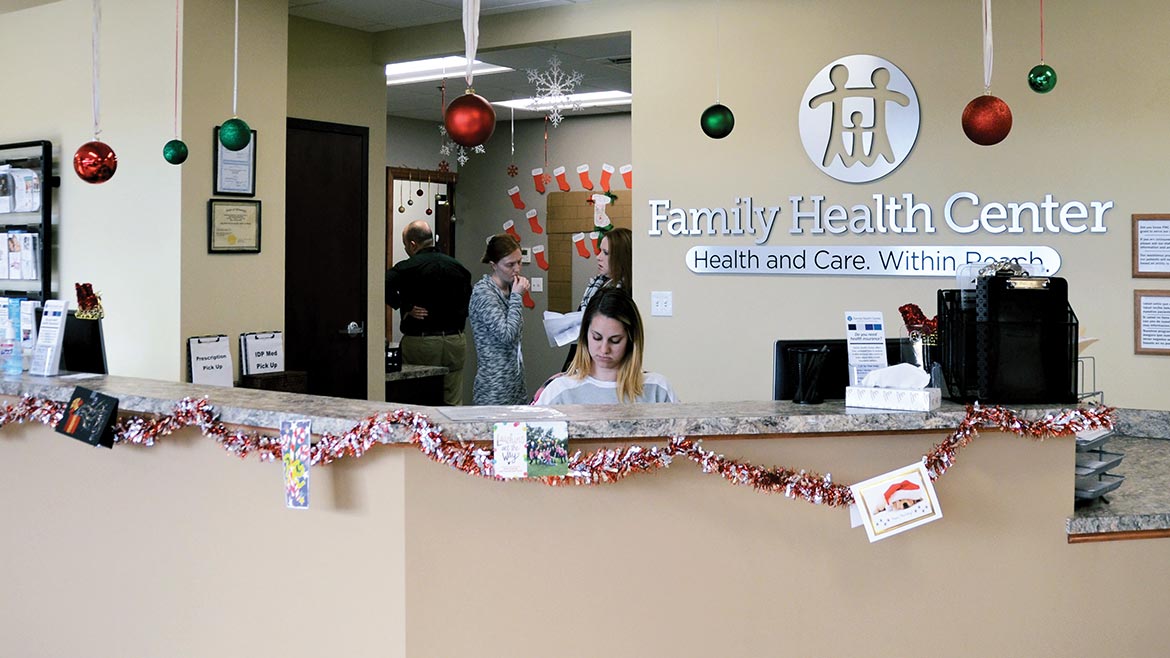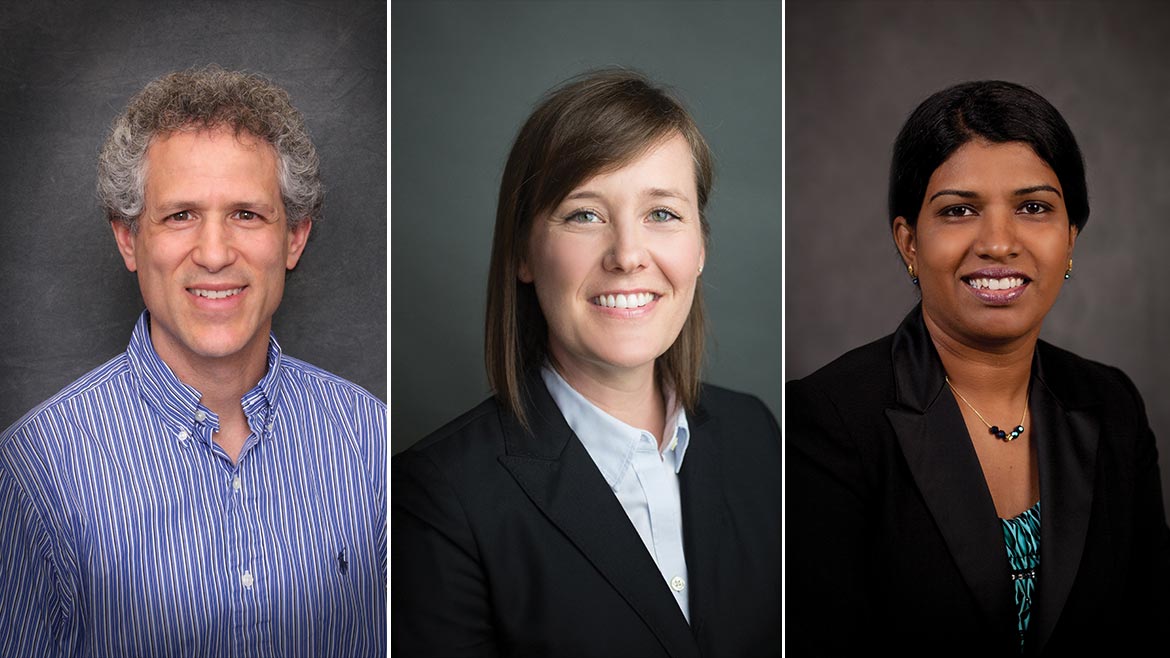
Your health can have a huge impact on your quality of life — bigger, even, than you might think. From maintaining a job to forging personal relationships to governing your day-to-day attitude, feeling good can alter who you are. Having a doctor who knows you and your body well is the first step in the right direction.
It sounds simple, but for those who slip through the cracks of the complex health care system, finding a doctor is one of many challenges. For these people, Family Health Center serves as a safety net, providing services for the uninsured, under-insured, and their families.
“The uninsured — people who are homeless or jobless — they’ve had a hard time finding a doctor to call their own,” says Dr. Andrew Quint, medical director of FHC and assistant professor of clinical medicine at MU. “We provide the same high quality level of care to anybody, regardless of their income level or economic status.”
With a network of resources in the area, including the Columbia–Boone County Health and Human Services Department and MU, FHC stretches beyond what is normally expected from a health care provider. With the help of behavioral health consultants, interpreters, clinical social workers, and other community organizations, the clinics provide care beyond a doctor’s visit when someone is in need.
“A lot of what we do is problem solving and finding these little fixes to get patients through until they get paid again or are in a better place,” Quint says. “Here, it isn’t enough to just write the prescription.”
The Full Spectrum
Although the organization’s mission is to provide for the medically underserved, FHC provides for the entire spectrum of patients in the Columbia community. In 2015, 27 percent of Family Health Center’s patients were uninsured, meaning that the majority of patients have some type of health insurance.
Chief Executive Officer Gloria Crull has been with Family Health Center since 1995. Over the years, she has watched the program grow into a teaching collaboration between the clinics and MU. The organization has expanded to provide dental and mental health services, and she’s seen the clinic develop strong partnerships within the community.
“[The community health center model] really is a comprehensive model,” Crull says. “We also don’t try to replicate what is already readily available in the community. That’s where our partnerships come into place.”

Beyond medical services, FHC helps patients overcome social barriers that make it difficult to receive care, like a lack of transportation. FHC sets aside funds for transportation and works to make sure that patients with severe or chronic illness can make it back to see their doctor. The clinics also collaborate with local pharmacies and pharmaceutical programs to provide affordable medicine to patients. FHC requires clinics to be located in areas of high poverty, for easy access to those populations. (The organization also has two rural locations, in Salisbury and Marceline, Missouri.)
“The thing that makes me so glad that I work at a place like this is when I see people that think they’ve run out of options,” Dr. Megan Cates says. “I can say with confidence that we will figure this out, one way or another.”
Cates is a board-certified family health physician who sees patients of all ages (and also prenatal patients). Her patients range from immigrants to the homeless to business professionals.
“Because we see a lot of people with social complexity, we are realistic caregivers,” Cates says. “We are very collaborative with our patients. We’ll ask, ‘What can we handle? What kind of service do you prefer?’ And I think that all patients appreciate that, not just the uninsured or under-insured.”
Never Giving Up
As a pediatric dentist, Dr. Sujatha Sivaraman has a strong influence on a child’s perception of dental care and overall health. “I have the opportunity to make their experience good, and that way, when they grow up, they’re not afraid to go to the dentist,” Sivaraman says. “If we put in all of those good preventative measures, maybe that kid will have good oral health and better quality of life.”
Crull and Cates both say the Family Health Center attracts medical professionals who deeply care about the people they serve. The organization holds high expectations for its residents, doctors, and staff to do everything they can to provide the best care. This often means going to great lengths to help those in need.
“We really are a mission-driven organization,” Crull said. “Our work is so complex and hard. If you don’t believe in it, you’re probably not going to stay.”
Sivaraman often works with children and teenagers who have been denied care from private practitioners due to insurance or behavioral issues. This can make her work more difficult, but she’s no less committed to it.
“We do treat a very challenging population as far as the amount of disease or their background is concerned,” Sivaraman says. “But I don’t think I could ever afford to give up on them when I’m the safety net.”
Family Health Center
Address
1001 W. Worley St.
Main Function
To provide access to primary medical, dental, and mental health services, with emphasis on the medically underserved
Staff
162
CEO
Gloria Crull
Board Members
Lynn Barnett
Rebecca Roesslet
Diana Morris
Karen Lumley
Gary Carlson
Marketta Hayes
Nolan Hollingsworth
Holly Keiser
Carol Klingsmith
Jessica Macy
Lori Osborne
Sharon-Frances Reynolds
Shelia Shaffer
People Served Annually
17,714
Number of Locations
5


